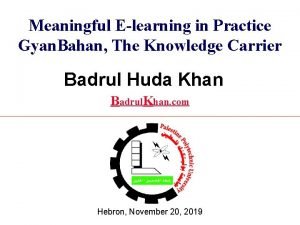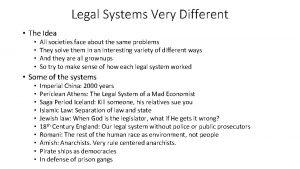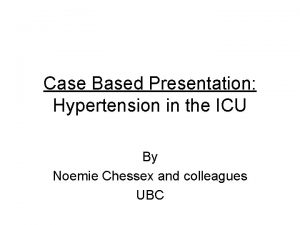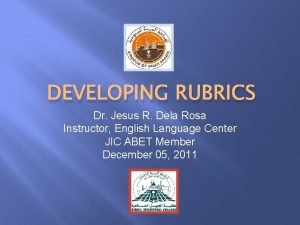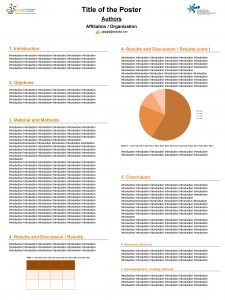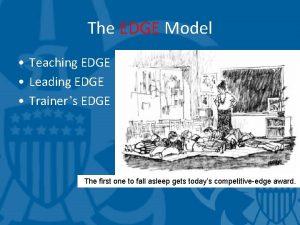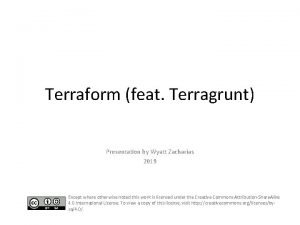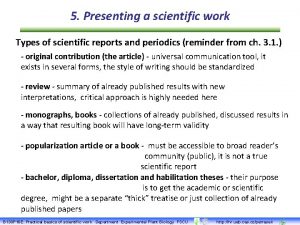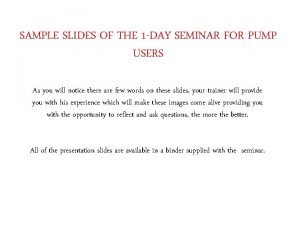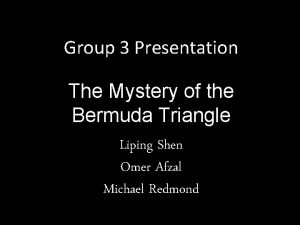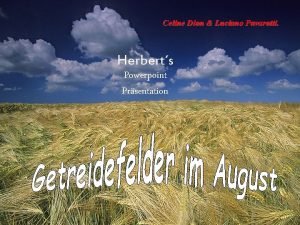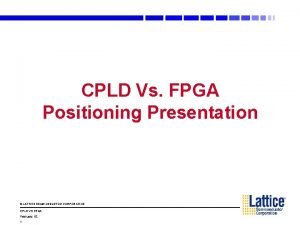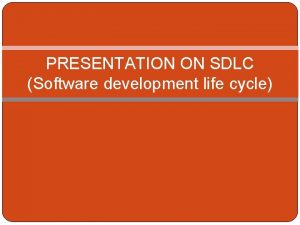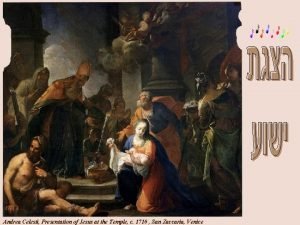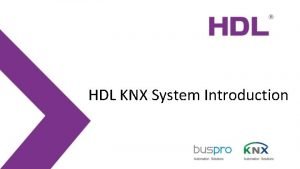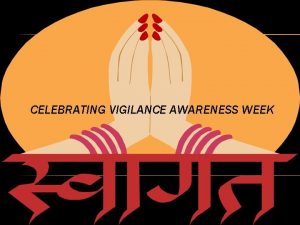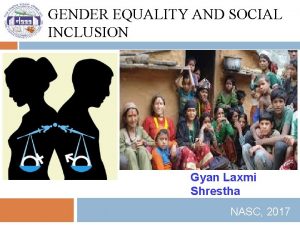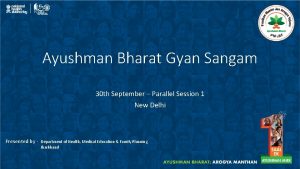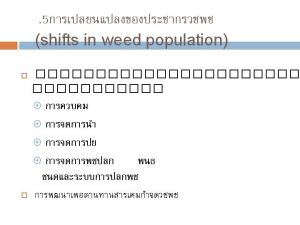Arsh Gyan Presentation In this presentation of ours



















































































































- Slides: 115

Arsh Gyan Presentation In this presentation of ours we have given names of God as defined by Maharshi Dayanand Saraswati As they are defined in Ved


" All the Vedas and the Shastraas declare AUM as the primary and natural name of God. All others are His secondary names. " MANDUK UPANISHAD 1: 1.

"He is One, but the wise call Him by different names; such as, Indra, Mitra, Varuna, Agni, Divya - One who pervades all the luminous bodies, the source of light; Suparnaa - the Protector and Preserver of the Universe, Whose work are perfect; Matrishwaa - Powerful like wind; Garutmaan - Mighty by nature. " RIG VEDA MANDAL 1 -22, 164.

"He Whom all the Vedas declare worthy of homage, Whom all devotion and righteous actions lead to, and for Whose realization, the life of Brahmacharya(chastity) is led, is called AUM. ” KATH UPANISHAD 7: 15.

"He , Who is the Teacher of all, subtler than the subtler , Resplendent, Who can be known through understanding begotten of Samadhi, i. e. , 'superior condition' of the soul, when the mind is perfectly concentrated by means of psychical practices, is the Great Being. "

It should be borne in mind that AUM is the name of God only (and of no other object - material or spiritual), whilst the application of such names as Agni to God is determined by two factors, viz. , the subject under treatment and the adjectives that qualify them.

In other words, these names signify God in prayers, meditations, communions, or where such, adjectives as Omniscient, Omnipresent, Holy, Eternal and Creator of the universe qualify them.

Whilst, where things under discussion are mentioned as created, protected, or sustained, disintegrated or where such qualifying words as finite, visible are used, they cannot be taken to signify God; because He is neither subject to such changes as evolution or dissolution, nor is He finite or visible. Therefore such names as Virat, Agni ( as in the following quotations) signify material objects of the universe: "Then was created Virat, etc. " "Thereafter was created Bhumi - earth. " YAJUR VEDA 31.

"Then did the Supreme Spirit manifest Akaasha. From Akaasha proceeded Vaayu and Agni from Vaayu, etc. " TAITREYA UPANISHAD.

Thus it is clear that these words ought to be understood to mean God where they have such qualifying words as Omniscient, etc. ; but, where desires, passions, feelings or pleasure or pain, finite knowledge and activity are spoken of these words signify the soul; where such words, as created, dissolved material, dead, inert, are found, they mean material objects as the sun, the earth.

We have here explained the meanings of only one hundred names, but there are million of other names of God besides these. His names are without number, because His nature, attributes and activities are infinite. One name stands for each of them. These hundred names are like a drop in the ocean.

In the Veda and Shastras, the infinite attributes, powers, characteristics of God, are described, and can be learnt by the study of those books. A perfect knowledge of even other subjects can only be gained by those who study them.

1 VIRAT (from the root Rajri to illuminate, with the prefix vi and suffix kwip added to it) signifies God, because He illuminates this multiform universe.

2. Agni (from the root anchu which signifies gati and worship. Gati means to know, to move or go, to realize) connotes God, because He is all-knowledge, Omniscient and worthy of adoration, fit subject to be known, sought after and realized.

3. Vishwa (from vish to reside) means God, because all the world and the worldly objects dwell in Him and He resides in all of them.

4. Hiranyagarbha (Hiranya - light and garbha - source) means One who is the source and support of all light and luminous bodies such as the sun. This is also substantiated by Yajur Veda, which says : - " In the beginning was Hiranyagarbha - the One Lord of the creation. He sustains the sun and the earth. We adore Him - the all Blissful Being. " YAJUR VEDA 13: 4.

5. Vaayu (from the root Va to move, to kill) means One who is the life and support of the Universe, the cause of its dissolution, mightier than the mightiest.

6. Taijas (from Teja to shine or enlighten) is One who is Resplendent and gives light to the sun and other luminous bodies.

7. Ishwar (from Ish - power, knowledge) is One whose knowledge and power are infinite.

8. A'ditya (from a - not, do - to break, decay) is One who never dies or decays - is Immortal.

9. Prajna (from Pre - perfectly and Jna - to know) One whose knowledge is perfect, Who is Omniscient.

10. AUM is the highest name of God; it is composed of three letters, A, U, M. This one name comprises many other names of God. Thus, briefly: - A stands for Viraat, Agni and Vishwa, etc. . U stands for Hiranyagarbha, Vaayu and Tajjas, etc. Mstands for I'shwara, A'ditya and Prajnaa, etc. Vedas and other true Shastraas, that whatever they treat of God; all these names stand for Him.

11. Mitra ( from nimid to love) means God, because He loves all and is worthy of being loved by all.

12. Varuna (from vri - good or vara - to desire) is One who is best, holiest of all and desired and sought after by all righteous, pious and learned men who are seekers after truth and salvation.

13. Aryama (from re to obtain, to go and ma to respect) is One who respects and honors the good and, the just, and punishes the wicked - The Great Judge who gives souls the fruits of their deeds, good or evil.

14. Indra (from Idi - power) is One who is all - powerful.

15. Vrihaspati ( pa - to correct or govern, Vriha - great) is One who is greatest among the great, and governs the entire universe.

16. Vishnu (Vishr - to pervade) is One who pervades all the universe, animate and inanimate.

17. Urukramaa ( uru - great, krama - energy) is One who possesses infinite energy.

18. Brahma (brih or brihi - to lord) is One who lords over all.

19. Bhumi is One who is the abode of all and greater than all.

20. Surya is One who is the life and light of the universe, animate or inanimate.

21. A'tma (at - to pervade) is One who pervades the soul as well as the material universe.

22. Paramaatmaa (para - great, aatmaa see above) is One who is holier than the soul, subtler and more powerful than the soul and matter, who pervades and controls the soul.

23. Parameshwar (Param - great, Ish - power, knowledge ) is One who is All-powerful among the powerful, Almighty.

24. Savita (su - to create) is One who is the Creator of the Universe.

25. Deva (from the root div, which means to operate, desire to win, work, illuminate, praise, please, punish, sleep, desire and know) is One who operates in the universe and governs it and does all His works by His own powers without help from others; Who desires or helps the good and the righteous to win and is Himself invincible, gives all power and means to work.

25. Deva (from the root div, which means to operate, desire to win, work, illuminate, praise, please, punish, sleep, desire and know) is one Who knows everything and is just and glorious, illuminates and enlightens all, is worthy of praise, All-blissful, bestows happiness on others, punishes the wicked and gladdens the hearts of the good and Himself enjoys perpetual bliss.

25. Deva (from the root div, which means to operate, desire to win, work, illuminate, praise, please, punish, sleep, desire and know) is one who has ordained night for all to sleep and rest, in the indefinable, imperceptible, primeval elementary matter - prakriti; Whose will is holy and Who is desired and sought after by the good, and Who pervades all and knows all.

26. Kurvera (kuvi - to cover or spread) is One who covers all or overspreads all.

27. Prithivi (prithu - spread) One who has spread this extensive universe.

28. Jala (jala - to beat) One who beats or punishes the wicked and beats the atoms into shape, or beats them as in the Creation or Dissolution of the universe, respectively.

29. Akaash (kash - to illuminate or enlighten) is One who illuminates or enlightens the whole world.

30. Anna and atta ( from ad to eat) is One who eats or absorbs into Himself or contains the universe, animate and inanimate. As grubs are born in the inside of a fruit of a fig tree, live and die in the same, so is the universe born, lives and perishes in God. TAITREYA UPANISHAD 2: 10. VEDANT SHASTRA 1: 29.

31. Vasu ( vas to abide or dwell) is the One who dwells in all things, and is the abode of all.

32. Rudra (Rudir - shed tears) is One who makes the wicked and the unjust shed tears. It is said in the Shatapatha Brahmana "Whatever a man thinks, he speaks; whatever he speaks, the same he acts; whatever he acts, he reaps". In other words, a man reaps whatever he sows. When the wicked suffer pain in consequence of their sins at the hand of Divine Justice, they wail and weep. He is, therefore, called Rudra

33. Naaraayana ( Naraa - water and souls, aayana - abode) signifies, God, because He is the abode of souls and pervades them. MANU 1: 10.

34. Chandra (chadi - to please) is the One who is All-bliss, and gives pleasure and happiness to others.

35. Mangala (mang - has the same meanings as gati, which means to know, to move or go, to realize ) is One who is All-blissful, and showers bliss on the soul.

36. Budha (budha - know) is One who is All-knowledge and endows souls with knowledge.

37. Shukra (shu -to purify) is One who is All-knowledge and endows souls with knowledge.

38. Shanaishchara (shanaish - with ease, char - to go, eat) is One who reaches or gains access to all with ease, and possesses great fortitude.

39. Rahu (rah - to avoid, reject) is He Who is one without admixture of anything else. Who rejects the wicked, and frees others from the hands of the wicked.

40. Ketu (kit - to abide or reside and cure disease) is One who is the abode of the universe, free from death and disease. He frees the emancipated souls from disease and suffering during the period of salvation.

41. Yajna (yaj - to shine, worship, combine, devise and give) is One who combines the different elements together and evolves this world and its objects out of them, Who is worthy of being worshipped by all the sages and seers from Brahma downwards and will always be. He is the Omnipresent God. "Yajna is the Omnipresent God", says the Shatapatha Brahmana.

42. Hotaa (hu - to give or take) is One who gives all that is worth giving to souls and takes from them what is worth taking.

43. Bandhu (bundha - to bind, connect) is One who keeps all the worlds bound by laws to Himself, and helps to keep them in order so that they cannot move out of their orbit or the laws of their constitution. He is like a brother unto all the world and supports, protects and gives happiness to all.

44. Pitaa (paa - to protect, rear) One who protects all. Just as a father, through paternal love and kindness always desires the good of His children, even so does God -is the Father of all - desire happiness for all.

45. Pitaamaha He is The father of fathers

46. Prapitaamaha He is The Great-Grandfather.

47. Maataa God is named mata (mother), because He has happiness and prosperity of all souls at heart just as an earthly mother, out of extreme love and kindness, desires happiness and prosperity for her offspring.

48. A'charya (char - to conduct, move, go and, eat) God is called so because He is the source of all true knowledge and righteousness. It is through Him we receive knowledge, and live virtuous lives.

49. Guru (Gri - to speak) the Teacher of all true knowledge and learning Who revealed the Word of salvation (Vedas) in the beginning of the world, the Teacher of even all the early teachers such as Agni, Vayu, A'ditya, Angira and Brahma. He is immortal, says Yogashastra. "He is the Teacher of even the most ancient teachers. He is Immortal. Time cannot influence Him. " YOGASHASTRA SAMADHI.

50. Aja (aja - to combine, join, manifest or evolve) is One who combines the elements and atoms properly, and evolves the world out of them; unites bodies with souls, and brings them out into the world, which is called their birth. He is Himself never born.

51. Brahma (brihi - to develop, multiply) is One who has created the world and multiplies it.

52. Satya (sat - to exist) is One who is the true embodiment of existence among all existences.

53. Jnaana is One who knows all the world, animate and inanimate. "The Great God is Satya Jnaana and Ananta" - Taitiriya Upanishad.

54. Ananta is one who has no limitations, boundaries, end or dimensions.

55. Anaadi is One who has no beginning, nor a first cause.

56. Ananda is One who is All-blissful and endows happiness on the good and the righteous.

57. Sata (asi - to be) is One who exists in all times, the past, the present and the future, and is not limited by time.

58. Chit is One who is a truly conscious Being and endows souls with true knowledge of right and wrong.

59. Sachidaananda (sata + chit + ananda) is One who is a truly conscious, blissful being.

60. Nitya Firm, Immortal, Eternal.

61. Shudha (shudh - to purify) is One who is Himself pure and purifies others.

62. Mukta (much - to free) is One who is always free from all sin and impurity, and frees souls from sin and suffering.

63. Nitya shudha budha mukta svbhaava is One who is Eternal, Holy, Omniscient and Free.

64. Niraakaara (nir - no, akar - form) is One who has no form nor body nor is ever embodied.

65. Niranjana (Nir -no, anj - form, color, immorality, disorder) is One who is free from immoral conduct, disorders, etc. , nor is He the object of senses such as the eyes.

66. Ganapati (Gana -host, pati - Lord) is One who is the Lord of host, i. e. , of all the Material and Spiritual world, which He also protects.

67. Ganesha (Gana - host, Isha - Lord) Lord of Hosts.

68. Vishveshwara (Vishwa - universe, Ishwara - Lord) Lord of the Universe.

69. Kutastha is One who pervades all, supports all, and yet Himself undergoes no transformation.

70. Devi has the same meanings as the word Deva, which is of Masculine gender, whilst Devi is of feminine gender. God has names in all the three genders.

71. Shakti (shak - power) is One who is powerful enough to create the world.

72. Shri (shri - to serve) is One who is served by all saints, sages and seers.

73. Lakshmi (Laksh - to see and mark) is One who sees all the universe and endows it with distinguishing marks or features, as bodies with eyes, ears, etc. ; trees with leaves, fruits and flowers; liquids and solids with different colors as black, white, red, etc. earth with dust and rock, etc. ; and sees them all. He is the most beautiful among the beautiful. He is the chief. Source of the Vedas, of the Yogis and wisemen.

74. Saraswati (sri - to achieve and know) is One who is possessed of infinite knowledge of the universe, of words, their objects and their relations.

75. Sarvashatimaan Is One who does not require the assistance of another in accomplishing His works, Who by His Own innate power does all His work.

76. Nyaayakaari. Nyaaya is what is proved to be true by all the eight kinds of evidence such as, Direct Cognition, Inference, Analogy. It is the dispensing of justice without favor or partiality. Nyaayakaari is One who practices Nyaaya, i. e. , truth, justice and righteousness.

77. Dayaalu (Daya - to give, take, go, know, protect injure) is One who makes you fearless knows all, protects the good, and punishes the wicked.

78. Advaita is One who is only one, and indivisible without any admixture, either of the same kind ( as man and man are of the same kinds from man), or made up of different parts. Consequently there is no relation of whole to its parts, as of body with its parts such as, eyes, ears.

79. Nirguna is One who is free from the (distinguishing) properties of matter such as Satwa, Rajas, Tamas, * color, taste, touch, smell and of the soul, such as finite power and knowledge, ignorance, passions and desires, and pain of all kinds. This definition is substantiated by the authority of Upanishada. "He is free from sound, touch, color, and such other qualities. "

80. Saguna is One who possesses such attributes, as perfect knowledge, perfect bliss, purity, infinite power.

81. Antaryami is One who pervades the animate as well as the inanimate universe, and controls it.

82. Dharma Raja is One who is free from sin and evil, and rejoices in truth, justice and righteousness - The Great Judge.

83. Yama is One who governs all, administers justice to all and is the personification of Justice.

84. Bhagwaan (Bhag - to serve) is One who is possessed of all might and power, and is worthy of being served and worshipped.

85. Manu (man - to know) is One who is the true embodiment of knowledge, and worthy of being known and believed.

86. Purusha (pri - to fill, sustain) is One who counts and classifies the material objects and souls.

87. Vaishwambhara is One who sustains and preserves the world

88. Kaala (Kal - to count) is One who counts and classifies the material objects and souls.

89. Shesha is One who undergoes no change during Creation or Dissolution. He is the one Unchangeable Eternal world.

90. A'pta (aap - to pervade) is One who pervades the universe, is filled with all true knowledge and righteousness, is the true Teacher of all, accessible only to the good and the righteous, and free from such bad attributes, as dishonesty, fraud, etc.

91. Shankara (sham - good, from kri - to do) is One who is the Benefactor of all, and Giver of happiness.

92. Mahaadeva (maha - great + deva) is One who is greatest among the great, the good, and the learned, and is the Light of the world.

93. Priya (pri - to please and desire) is One who gladdens the good, the righteous and the true seekers of salvation, and is worthy of being sought after - The embodiment of Love.

94. Swayambhu (swayam - self and bhu - to be) is One who is Self-existent, Uncreated.

95. Kavi (ku - word) is One who is all-knowledge and reveals true knowledge through His Word (The Veda).

96. Shiva is One who is all Bliss and he Giver of happiness to all.

97. Swarat Self-effulgent.

98. Suparnaa the Protector and Preserver of the Universe.

99. Matrishwaa Powerful like wind.

100. Garutmaan Mighty by nature.
 Meao therapy
Meao therapy Gyan ki bahan
Gyan ki bahan Gyan vahini
Gyan vahini Gyan sys
Gyan sys Caricature blocus de berlin ours analyse
Caricature blocus de berlin ours analyse Glut is ours
Glut is ours The future is ours to create
The future is ours to create Imperialists vs anti imperialists
Imperialists vs anti imperialists Ours was the marsh country
Ours was the marsh country Yours mine amd ours
Yours mine amd ours Legal systems very different from ours
Legal systems very different from ours Dicton chandeleur ours
Dicton chandeleur ours Blocus de berlin
Blocus de berlin 5cm labor
5cm labor Leopold maneuver
Leopold maneuver Chatecholamine
Chatecholamine Family case presentation
Family case presentation This is your presentation title
This is your presentation title Seo 101 presentation
Seo 101 presentation Qpr gatekeeper quiz answers
Qpr gatekeeper quiz answers Board of directors compliance training
Board of directors compliance training Holistic rubric for oral presentation
Holistic rubric for oral presentation Acknowledgement powerpoint
Acknowledgement powerpoint Academic english presentation
Academic english presentation Dept. name of organization (of affiliation)
Dept. name of organization (of affiliation) Presentation layer protocols
Presentation layer protocols Emergency medicine case presentation
Emergency medicine case presentation Employee engagement plan sample
Employee engagement plan sample Pbxware
Pbxware Ladder risk assessment checklist
Ladder risk assessment checklist Allppt layout clean text slide for your presentation
Allppt layout clean text slide for your presentation Purpose of poster presentation
Purpose of poster presentation Advanced persistent threat presentation
Advanced persistent threat presentation My future profession presentation
My future profession presentation Performance management presentation
Performance management presentation Adenocarconoma
Adenocarconoma Simple past tense presentation
Simple past tense presentation Allppt layout clean text slide for your presentation
Allppt layout clean text slide for your presentation Journalism inverted pyramid
Journalism inverted pyramid Edge method presentation
Edge method presentation What is terragrunt
What is terragrunt The color purple presentation
The color purple presentation Cyber safety presentation
Cyber safety presentation Interactive oral presentation
Interactive oral presentation Senior exit project
Senior exit project Pros and cons of 4 day school week
Pros and cons of 4 day school week Poster presentation title
Poster presentation title Thank you images for presentation
Thank you images for presentation This presentation is brought to you by
This presentation is brought to you by Us history tri fold
Us history tri fold Types of scientific presentation
Types of scientific presentation Gmail presentation
Gmail presentation Lpa aspal
Lpa aspal Sample of seminar presentation
Sample of seminar presentation Romeo and juliet multimedia presentation
Romeo and juliet multimedia presentation Presentation about travelling
Presentation about travelling News text structure
News text structure Bermuda triangle presentation
Bermuda triangle presentation Meat presentation
Meat presentation Unit 6 principles of management
Unit 6 principles of management United kingdom presentation
United kingdom presentation Short oral presentation example
Short oral presentation example Enron presentation
Enron presentation Isbar handover
Isbar handover Michael alley presentation
Michael alley presentation Nbt tax
Nbt tax Celine dion presentation
Celine dion presentation Ndpiii
Ndpiii Athletic department budget presentation
Athletic department budget presentation Assaignment
Assaignment Immigration presentation ideas
Immigration presentation ideas What is first generation of computer
What is first generation of computer Chrismas presentation
Chrismas presentation Societe generale scf
Societe generale scf Occupational health and safety presentation
Occupational health and safety presentation Welcome to our presentation
Welcome to our presentation How to cite a website without an author
How to cite a website without an author Sociolinguistics topics
Sociolinguistics topics Diocletian facts
Diocletian facts Os utilities
Os utilities Agenda presentation
Agenda presentation Cio first 100 days template
Cio first 100 days template Corpus presentation
Corpus presentation Presentation on types of computer
Presentation on types of computer Fpga presentation
Fpga presentation The basic unit of the fabric is
The basic unit of the fabric is Software development life cycle presentation
Software development life cycle presentation Dvc mediclaim
Dvc mediclaim Presentation structure
Presentation structure Presentation in the temple
Presentation in the temple Beacon street group investor presentation
Beacon street group investor presentation Knx topology
Knx topology Presentation secondary school listowel
Presentation secondary school listowel Present simple and past continuous
Present simple and past continuous Store design objectives ppt
Store design objectives ppt Design review presentation
Design review presentation Iso 9001 presentation
Iso 9001 presentation Mmat5390
Mmat5390 Pocrastinating
Pocrastinating Don't chomp фф
Don't chomp фф Disclaimer ppt
Disclaimer ppt How to insert image in powerpoint presentation
How to insert image in powerpoint presentation Nephrology case presentation
Nephrology case presentation фф don't chomp
фф don't chomp Medicare supplement sales presentation
Medicare supplement sales presentation Poster presentation logo
Poster presentation logo Harassment in the workplace training material
Harassment in the workplace training material Welcome to our presentation
Welcome to our presentation Business case presentation
Business case presentation Vigilance awareness week presentation
Vigilance awareness week presentation Data presentation examples
Data presentation examples Conclusion for case study
Conclusion for case study Surgery case presentation
Surgery case presentation Owens corning investor relations
Owens corning investor relations Structure of a sales presentation
Structure of a sales presentation Allppt layout clean text slide for your presentation
Allppt layout clean text slide for your presentation

